|
|
|
|
|
|
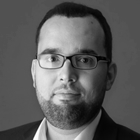 |
| INVITED |
|
 |
| . |
|
|
Neil Abroug
National Innovation Council, France
Invited – Plenary Session
|
|
|
|
|
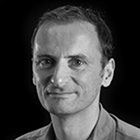 |
| KEYNOTE |
|
 |
| . |
|
|
Antonio Acín
ICREA/ICFO, Spain
Keynote – Plenary Session
Antonio Acín is an ICREA Research Professor at ICFO-The Institute of Photonic Sciences. He has a degree in Physics from the Universitat de Barcelona (UB) and in Telecommunication Engineering from the Universitat Politècnica de Catalunya. He got his PhD in Theoretical Physics in 2001 from the UB. After a post-doctoral stay in Geneva, he joined ICFO in 2003, where he leads the Quantum Information Theory group. Acín's research has been awarded with 4 grants from the European Research Council: 1 Starting, 1 Proof of Concept, 1 Consolidator and 1 Advanced Grant, the latter starting in 2020. He also received an AXA Chair in Quantum Information Science in 2016.
|
|
|
|
|
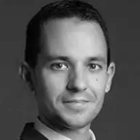 |
KEYNOTE
Industrial Forum |
|
 |
| . |
|
|
Marc Almendros
Keysight Technologies, Spain
Keynote - Industrial Forum
|
|
|
|
|
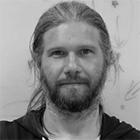 |
| INVITED |
|
 |
| . |
|
|
Mete Atature
University of Cambridge, UK
Invited – Plenary Session
Mete Atatüre received his Bachelor of Science degree in 1996 from Bilkent University Physics Department in Turkey. Then, he joined the Quantum Imaging Laboratory at Boston University for his PhD studies. From 2002 to 2007, he worked as a Postdoctoral Fellow in the Quantum Photonics Group at ETH Zurich. He joined the Cavendish Laboratory in June 2007 as a University Lecturer, was promoted to a Readership in 2011 and to a Professorship in 2015.
|
|
|
|
|
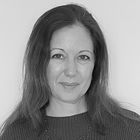 |
| INVITED |
|
 |
| . |
|
|
Leni Bascones
ICMM/CSIC, Spain
Invited – Plenary Session
Leni Bascones is a research scientist at ICMM-CSIC expert in quantum materials. Her research explores from a theoretical perspective the complex electronic states which emerge as a consequence of the repulsion between electrons, such as Mott insulators, magnetism, nematicity and superconductivity. She is currently interested in understanding the fascinating phases discovered in moiré heterostructures. Previously she worked extensively in high temperature superconductors, cuprates and iron based. Leni got her Phd in Physics from Universidad Autónoma de Madrid, was a postdoctoral researcher at the University of Texas at Austin and at ETH-Zurich, and has been a visiting scientist at other universities such as ESPCI in Paris. She is involved in many activities which bring science closer to society and create a more inclusive scientific environment.
|
|
|
|
|
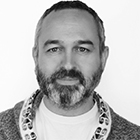 |
INVITED
Industrial Forum |
|
 |
| . |
|
|
Sergio Boixo
Google, USA
Invited - Industrial Forum
Sergio Boixo leads the Quantum Computer Science group at Google Quantum AI. He was previously a research professor and quantum engineer at USC, and a postdoc at Harvard and Caltech. Sergio has a doctorate in physics from UNM, a master's degree in physics from UAB, is a computer engineer from UCM, and studied mathematics and philosophy at UNED. Previously Sergio worked as a computer engineer at the European Central Bank and other companies.
|
|
|
|
|
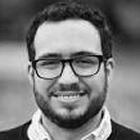 |
| INVITED |
|
 |
| . |
|
|
Fernando Brandão
Amazon Web Services & CALTECH, USA
Invited – Plenary Session
Fernando G.S.L. Brandão is the head of quantum algorithms at Amazon Web Services and Professor of theoretical physics at Caltech division of Physics, Mathematics and Astronomy.
Previously he was visiting faculty at Google´s Quantum AI Lab (2018-2019), a researcher at Microsoft (2015-2016) and a reader in computer science at University College London (2013-2016). Before that he was a senior researcher at ETH (2012), after being an assistant professor of physics at UFMG (2011-2012). I hold a PhD from Imperial College London (2008), and was a postdoctoral fellow at Imperial College London (2008-2010) and UFMG (2010-2011). His research is on quantum information science. He explores the interplay of physics, computer science and math to study the role of quantum mechanics in computation and information processing.
|
|
|
|
|
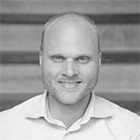 |
KEYNOTE
Industrial Forum |
|
 |
| . |
|
|
Niels Bultink
Qblox BV, The Netherlands
Keynote - Industrial Forum
Niels specializes in controlling quantum computers performing the first feedback on solid-state qubits in 2012. His PhD research with Leonardo DiCarlo at TU Delft has led to more than ten scientific publications centred around fault-tolerant quantum computing with superconducting circuits. The work at QuTech enabled the control of setups with up to 50 qubits and has now found its way to the market via the company Qblox. With Qblox new and industrialized generation of control stacks, he is paving the way for quantum computer integrators worldwide to reach practical applications in quantum computing.
|
|
|
|
|
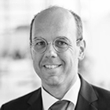 |
| KEYNOTE |
|
 |
| . |
|
|
Tommaso Calarco
Forschungszentrum Jülich, Germany
Keynote – Plenary Session
Tommaso Calarco has pioneered the application of quantum optimal control methods to quantum computation and to many-body quantum systems. Currently the Director of the Institute for Quantum Control of the Peter Grünberg Institute at Forschungszentrum Jülich, Tommaso received his PhD at the University of Ferrara and started to work as a postdoc in the group of P. Zoller at the University of Innsbruck. He was appointed as a Senior Researcher at the BEC Centre in Trento in 2004 and as a Professor for Physics at the University of Ulm in 2007, where he then became Director of the Institute for Complex Quantum Systems and of the Centre for Integrated Quantum Science and Technology. He has authored in 2016 the Quantum Manifesto, which initiated the European Commission’s Quantum Flagship initiative, and is currently the Chairman of one of the Flagship’s Governing Bodies: The Quantum Community Network.
|
|
|
|
|
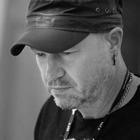 |
INVITED
Industrial Forum |
|
 |
| . |
|
|
Bob Coecke
Cambridge Quantum / Quantinuum, UK
Invited - Industrial Forum
Bob Coecke is Chief Scientist at Cambridge Quantum / Quantinuum, where he also heads the Oxford-based QNLP&CI-team, and is Emeritus Professor at Wolfson College, Oxford. Previously he was Professor of Quantum Foundations, Logics and Structures at the Department of Computer Science at Oxford, and co-founded, built, and led a multi-disciplinary research group of up to 50 people, and supervised 66 PhD students. He pioneered Categorical Quantum Mechanics (now in AMS’s MSC2020 classification) aka Quantum Picturalism, ZX-calculus, DisCoCat NLP, mathematical foundations for resource theories, Quantum Natural Language Processing, and is co-author of Picturing Quantum Processes, a book providing a fully diagrammatic treatment of quantum theory and its applications
|
|
|
|
|
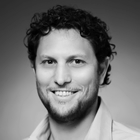 |
KEYNOTE
Industrial Forum |
|
 |
| . |
|
|
Yonatan Cohen
Quantum Machines, Israel
Keynote - Industrial Forum
Dr. Yonatan Cohen is a quantum physicist and entrepreneur, the CTO and Co-Founder of Quantum Machines. He is also the co-founder and the ex-managing director of the Weizmann Institute’s Entrepreneurship Program. Yonatan completed his MSc and Ph.D. in Prof. Moty Heiblum’s lab at the Weizmann Institute of Science in Israel, working on quantum electronics, superconducting-semiconducting devices, and microfabrication.
|
|
|
|
|
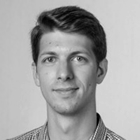 |
INVITED
Industrial Forum |
|
 |
| . |
|
|
Gianni Del Bimbo
Multiverse Computing
, Spain
Invited - Industrial Forum
Gianni started to work as a quantum engineer at Multiverse Computing in 2020. He developed quantum algorithms to solve hard problems in finance, with a focus on quantum variational and quantum machine learning methods. Currently, as Head of Quantum Engineering, he leads multiple teams to provide quantum computing applications to companies from several industries, like finance, energy and manufacturing. He got his Master degree in Physics from the Ludwig Maximilian University (LMU) of Munich with a thesis on computational methods for strongly correlated systems. He got his Bachelor degree in Physics and Astrophysics from the University of Florence
|
|
|
|
|
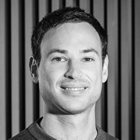 |
INVITED
Industrial Forum |
|
 |
| . |
|
|
Matthieu Desjardins
C12 Quantum Electronics, France
Invited - Industrial Forum
Dr. Matthieu Desjardins is CTO at C12. He received his Ph.D. from Ecole Normale Supérieure in 2016 for his work on quantum electronics. He founded C12 in 2020. C12 is leading the next materials leap in quantum computing and is on a mission to build reliable quantum computers to speed up highly complex computing tasks, thanks to a unique know-how developed at CNRS and the Physics Laboratory of the Ecole Normale Supérieure in Paris. C12 believes that only a materials science breakthrough will enable large-scale quantum computers.
|
|
|
|
|
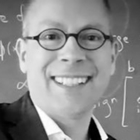 |
| INVITED |
|
 |
| . |
|
|
Jens Eisert
Freie Universität Berlin, Germany
Invited – Plenary Session
Jens Eisert is full professor for quantum physics at the Freie Universität Berlin and is also affiliated with the Helmholtz Center Berlin and the Fraunhofer Heinrich Hertz Institute. He is known for various contributions to our understanding of quantum computers and simulators, including aspects of their functioning and verification. He has also made substantial contributions to the study of complex quantum systems Recently he has also become interested in assessing learning tasks with quantum devices, the core topic of the talk. On the basis of his works, he has been awarded a EURYI Award, an ERC grant and the Google NISQ Award.
|
|
|
|
|
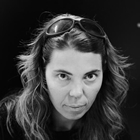 |
| KEYNOTE |
|
 |
| . |
|
|
Francesca Ferlaino
University of Innsbruck & IQOQI, Austria
Keynote – Plenary Session
Francesca Ferlaino is Professor of Physics at the University of Innsbruck (Austria). She is currently Research and Managing Director at the Institute for Quantum Optics and Quantum Information (IQOQI) of the ÖAW. Her research activity explores quantum phenomena in atomic gases at ultralow temperatures with contributions spanning topics including quantum matter of atoms and molecules and few-body and scattering physics. Over the last years, she focuses specifically on the strongly magnetic Erbium and Dysprosium atomic species, realizing in 2012 the first worldwide Bose- Einstein condensation of Erbium, and in 2018 the first dipolar quantum mixture of Erbium and Dysprosium. In 2020, she was able to prepare the first long-lived supersolid state, an elusive and paradoxical state where superfluid flow and crystal rigidity coexist. With these systems, she explored a variety of many-body quantum phenomena dictated by the long-range and anisotropic dipolar interaction among the atoms.
|
|
|
|
|
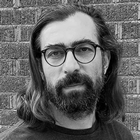 |
INVITED
Industrial Forum |
|
 |
| . |
|
|
Oktay Goktas
Agnostiq, Canada
Invited - Industrial Forum
Oktay is the co-founder and CEO of Agnostiq. Oktay received his PhD in physics from the Max-Planck Institute, Stuttgart, Germany. After his PhD he was a postdoctoral fellow at the Weizmann Institute of Science in Israel. He worked in Turkey as an Assistant Professor before moving to Canada as a visiting scientist at the University of Toronto in 2017. Since 2018 he has led Agnostiq, a Toronto-based software startup developing software for quantum computing and high performance computing.
|
|
|
|
|
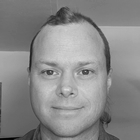 |
INVITED
Industrial Forum |
|
 |
| . |
|
|
David Hayes
Qantinuum, USA
Invited - Industrial Forum
My academic career included graduate student theoretical research at the University of New Mexico and experimental research at the University of Maryland, as well as an experimental post-doc position at the University of Sydney. I’ve been working in industry since 2014, including 6 years with Honeywell Quantum Solutions and Quantinuum. Today I specialize in theoretical modeling of quantum operations designed for high-fidelity quantum computing and the design of QCCD based architectures, and I also manage a group of theorists at Quantinuum.
|
|
|
|
|
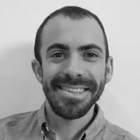 |
INVITED
Industrial Forum |
|
 |
| . |
|
|
Loïc Henriet
Pasqal, France
Invited - Industrial Forum
Loic Henriet holds a PhD in Theoretical Quantum Physics from Ecole Polytechnique. During his PhD, he focused on developing theoretical and numerical methods to describe the dynamics of many-body quantum systems. He subsequently joined the research group of Prof. Darrick E. Chang at the Institute for photonics sciences (ICFO) in Barcelona, Spain. He worked there on describing the emergence of collective quantum effects in light-matter systems. Working on quantum technology applications, he notably described a novel generation of atomic clocks that could potentially outperform standard atomic clocks thanks to many-body quantum effects. His interest in practical quantum technologies led him to join Pasqal a few months after the creation of the company. At Pasqal, Loïc is leading the Research & Development efforts, both on the hardware and on the software side.
|
|
|
|
|
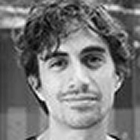 |
| INVITED |
|
 |
| . |
|
|
Alexandre Jaoui
ICFO, Spain
Invited – Plenary Session
|
|
|
|
|
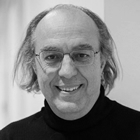 |
| KEYNOTE |
|
 |
| . |
|
|
Jose Ignacio Latorre
Center for Quantum Technologies, Singapore
Keynote – Plenary Session
JIL is the Chief Researcher of the Quantum Research Centre in theTechnology Innovation Institute in Abu Dhabi and the Director of theCenter for Quantum Technologies in Singapore. He got his PhD inelementary particle physics and has worked extensively in quantumfield theory, particle phenomenology, RG, quantum information andartificial intelligence. His outreach activity includes the writing ofthree popular books and the production of two documentaries. He hasalso co-founded Qillimanjaro Quantum Tech, a company that isconstructing the first quantum computer in the South of Europe.
|
|
|
|
|
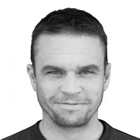 |
| INVITED |
|
 |
| . |
|
|
Peter Leek
University of Oxford, UK
Invited – Plenary Session
Peter Leek received his PhD from the University of Cambridge (UK) in 2006, before spending 5 years working as a postdoctoral researcher at ETH Zurich (Switzerland). Since 2012 Dr Leek has led an experimental research group at the University of Oxford (UK), working on developing superconducting circuits for quantum computing. In 2017 Dr Leek founded the spin-out company Oxford Quantum Circuits, which develops quantum computers building on innovations from Dr Leek’s research group
|
|
|
|
|
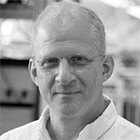 |
| PLENARY |
|
 |
| . |
|
|
Charles Marcus
Niels Bohr Institute, Denmark
Plenary Talk
Charles Marcus is an experimental condensed matter physicist known for contributions to mesoscopic physics, quantum Hall effects, and connections to quantum chaos. His work also spans spin transport, and spin qubits, and more recently hybrid semiconductor-superconductor structures with connection to topological matter and topological quantum computing. Marcus was raised in Sonoma, California. He attended Stanford University as an undergraduate, and received his PhD from Harvard University in 1990, where he was also an IBM postdoctoral Fellow from 1990 to 1992. He was on the Physics faculty at Stanford University (1992-2000) and Harvard University (2000-2011). At Harvard he was also director of the Center for Nanoscale Systems (2006-2011). Marcus moved to the Niels Bohr Institute in 2012 and currently serves as director of the Center for Quantum Devices, a basic research center sponsored by the Danish National Research Foundation. He is also director of Microsoft Quantum Lab – Copenhagen, part of a Microsoft sponsored effort to understand and build a topological quantum information processing device.
|
|
|
|
|
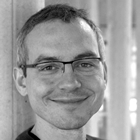 |
INVITED
Industrial Forum |
|
 |
| . |
|
|
Michael Marthaler
HQS Quantum Simulations, Germany
Invited - Industrial Forum
PhD on QED in Superconducting Devices in 2009 at the University of Karlsruhe (now KIT). As a researcher, Michael designed and taught lectures on quantum computing. From 2010 to 2019, he led a research group, working on quantum simulation, quantum metamaterials and open quantum systems. As CEO, he is the main representative of the company and responsible for its long-term vision.
|
|
|
|
|
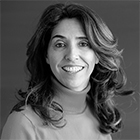 |
| KEYNOTE |
|
 |
| . |
|
|
Cristiane Morais Smith
Utrecht University, The Netherlands
Keynote – Plenary Session
C. Morais Smith is a worldwide recognised researcher working on the theory of strongly-correlated systems. She was awarded the Winter 2019 Emmy Noether Distinction of the European Physical Society, “for her outstanding contributions to the theory of condensed matter systems and ultracold atoms to unveil novel quantum states of matter" and the 2016 Dresselhaus Prize CUI Hamburg University, Senior scientist, “for her outstanding contribution to the understanding of topological phases in two-dimensional atomic and electronic systems”. Her research interests range from condensed-matter to cold-atom systems. In collaboration with experimental colleagues, her group has pioneered the realization of quantum fractals and higher-order topological states in electronic quantum simulators. Her group has also set the basis for a thermodynamic description of topological insulators and superconductors and actively contributed to the development of a projected quantum electrodynamics (CQED and Pseudo QED) formulation to investigate topological phases driven by interactions. The research done in her group spans a large variety of techniques, from tight-binding models, muffin-tin, to quantum field theory, renormalization group, Schwinger-Dyson, and Chern-Simons theory.
|
|
|
|
|
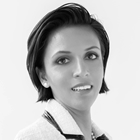 |
| INVITED |
|
 |
| . |
|
|
Prineha Narang
Harvard University, USA
Invited – Plenary Session
Prineha Narang is an Assistant Professor at the John A. Paulson School of Engineering and Applied Sciences at Harvard University. Prior to joining the faculty, Prineha came to Harvard as a Ziff Fellow at HUCE and worked as a Research Scholar at MIT. She received an M.S. and Ph.D. in Applied Physics from the California Institute of Technology (Caltech). Prineha’s work has been recognized by many awards and special designations including the Mildred Dresselhaus Prize, Bessel Research Award from the Alexander von Humboldt Foundation, a Max Planck Sabbatical Award from the Max Planck Society, and the IUPAP Young Scientist Prize in Computational Physics all in 2021, an NSF CAREER Award in 2020, being named a Moore Inventor Fellow by the Gordon and Betty Moore Foundation for pioneering innovations in quantum science, CIFAR Azrieli Global Scholar by the Canadian Institute for Advanced Research, and a Top Innovator by MIT Tech Review (MIT TR35). Outside of science, she is an avid triathlete and runner.
|
|
|
|
|
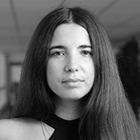 |
INVITED
Industrial Forum |
|
 |
| . |
|
|
Carmen Palacios-Berraquero
Nu Quantum, UK
Invited - Industrial Forum
Company co-founder and CEO, Carmen Palacios Berraquero, physicist by background, carried out her training and research at the Cavendish Laboratory, University of Cambridge, and at the Blackett Laboratory, Imperial College London. Author of several high-impact academic papers, in 2018 Carmen was awarded the Institute of Physics National Medal and Prize for her research on Quantum Optics, and for discovering the single-photon source technology which resulted in the foundation of Nu Quantum. The first OneQuantum + Women in Quantum Entrepreneur of the Year 2021, and was listed in Forbes magazine as a ‘Founders Forum Rising Star 2021’
|
|
|
|
|
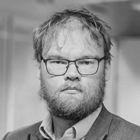 |
INVITED
Industrial Forum |
|
 |
| . |
|
|
Jelmer Renema
Quix Quantum, The Netherlands
Invited - Industrial Forum
Jelmer Renema is the CTO of QuiX Quantum and an assistant professor of quantum optics at the University of Twente. He did his PhD in Leiden, in the group of Martin van Exter, before moving to the group of Ian Walmsley in Oxford for a postdoc. After obtaining a Veni fellowship, he moved to the University of Twente and founded QuiX Quantum in 2019.
|
|
|
|
|
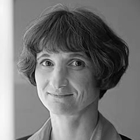 |
KEYNOTE
Industrial Forum |
|
 |
| . |
|
|
Heike Riel
IBM Research, Switzerland
Keynote - Industrial Forum
Dr. Heike Riel is IBM Fellow, Head of Science & Technology and Lead of IBM Research Quantum Europe & Africa. She leads the Science & Technology department aiming to create scientific and technological breakthroughs in Quantum Computing and Technologies, Physics of Artificial Intelligence, Nanoscience and Nanotechnology and to explore new directions to computing. She received the master’s in physics from the Friedrich-Alexander University of Erlangen-Nürnberg and the PhD in physics from University of Bayreuth and an MBA from Henley Business College (UK). Her work has been recognized by several honors, e.g., elected member of the Leopoldina – German National Academy of Sciences and the Swiss Academy of Engineering Sciences, APS David Adler Lectureship Award in the Field of Materials Physics, the Applied Physics Award of the Swiss Physical Society, the 2022 IEEE Andrew S. Grove Award, Fellow of the American Physical Society, an honorary doctorate by Lund University and she was elected to the National Academy of Engineering in 2022.
|
|
|
|
|
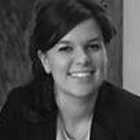 |
| INVITED |
|
 |
| . |
|
|
Giulia Semeghini
Harvard University, USA
Invited – Plenary Session
Giulia Semeghini did her PhD at LENS in Florence under the supervision of Giovanni Modugno, studying the effects of disorder on the transport of quantum particles. She continued to work at LENS as a postdoctoral fellow under the supervision of Marco Fattori, investigating the formation of a novel quantum phase in ultracold atoms, the so-called quantum droplet. She is currently a MPHQ postdoctoral fellow in the Lukin group, where she studies arrays of individual Rydberg atoms trapped in optical tweezers, which represent an extremely versatile tool for investigations in the direction of both quantum simulation and quantum information
|
|
|
|
|
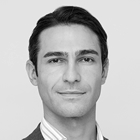 |
INVITED
Industrial Forum |
|
 |
| . |
|
|
Niccolo Somaschi
Quandela, France
Invited - Industrial Forum
Niccolo Somaschi is the cofounder and CTO of Quandela, a Quantum computing company providing solutions based on photonic technologies. Niccolo started his studies at the university of Milan, followed with a PhD in physics at the University of Southampton and subsequent post-doc at the CNRS – C2N laboratory in France. Niccolo is an expert in semiconductor processing and quantum optics, and he is at the origin of the latest generation of quantum light emitter devices and their integration in the quantum computing platforms proposed by Quandela.
|
|
|
|
|
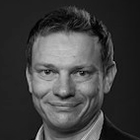 |
| INVITED |
|
 |
| . |
|
|
Christoph Stampfer
RWTH, Germany
Invited – Plenary Session
Since 2013 Christoph Stampfer is Full Professor of Experimental Solid State Physics at the RWTH Aachen University and researcher at the Forschungszentrum Jülich. His primary interests include graphene and 2D materials research, mesoscopic physics, and quantum devices. He holds a Dipl.-Ing. degree in Technical Physics from the TU Vienna and a PhD in Mechanical Engineering (Micro and Nanosystems Group) from the ETH Zurich. He was a PostDoc in the Nanophysics Group at the Laboratory of Solid State Physics at the ETH Zurich from 2007 to 2009 and JARA-FIT Junior Professor at the RWTH Aachen and the Forschungszentrum Jülich from 2009 till 2013.
|
|
|
|
|
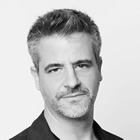 |
INVITED
Industrial Forum |
|
 |
| . |
|
|
Daniel Szombati
Qilimanjaro, Spain
Invited - Industrial Forum
Daniel is a senior hardware engineer at Qilimanjaro Quantum Tech. He has obtained his PhD from the TU Delft on quantum transport in exotic low temperature semiconductor physics. He then dived into the world of superconducting qubits by taking on research position first at the University of Queensland in Brisbane and then at the École Normale Supérieure de Lyon, where he made his contribution to the field via significant scientific publications on first principle qubit physics. He is now leading the research efforts at Qilimanjaro towards a first coherent adiabatic quantum computing processor.
|
|
|
|
|
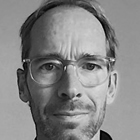 |
| INVITED |
|
 |
| . |
|
|
Wolfgang Tittel
TU Delft, The Netherlands
Invited – Plenary Session
Wolfgang Tittel received his PhD from the University of Geneva in 2000, joined the University of Calgary in 2006 as associate professor and industrial research Chair, and became full professor in 2013. In 2018 he accepted a position at QuTech at the Delft University of Technology and, since September 2021, he is a visiting professor at the University of Geneva and the SIT in Geneva. Dr. Tittel has engaged in groundbreaking research in quantum communication from the early stages on. His work stretches across atomic and optical physics, and has raised appreciation that quantum communication is not restricted to controlled laboratory settings. His current research interests include the interaction between photons and rare-earth crystals—both for optical quantum memory as well as sources of quantum light—, nano-photonics, and quantum repeaters. Dr. Tittel’s work has been cited more than 24,000 times, and he has raised funding in excess of EU 17M. He has steered institutes at the Universities of Calgary and Delft, was a senior fellow of the Canadian Institute for Advanced Research, and has been a founding member of the international QCRYPT conference, the workshop for quantum repeaters and networks, and the IOPscience journal “Quantum Science and Technology”.
|
|
|
|
|
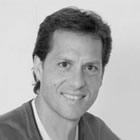 |
| INVITED |
|
 |
| . |
|
|
Sergio O. Valenzuela
ICREA/ICN2, Spain
Invited – Plenary Session
Prof. Sergio Valenzuela obtained his PhD in physics in 2001 at the Universidad de Buenos Aires (Argentina) and held research positions at Harvard University and the Massachusetts Institute of Technology (MIT). Since July 2008 Prof. Valenzuela has been an ICREA research professor and leader of the ICN2 Physics and Engineering of Nanoelectronic Devices Group. His research is focused on the unique properties of materials with nanoscale dimensions, motivated by both their intrinsic scientific interest and their potential for advanced electronic applications. His work encompasses spintronics, quantum computation with superconducting circuits and nanoelectromechanical systems (NEMS). Together with his collaborators, he has pioneered the use of non-local devices to study the spin Hall effect of thermopiles to isolate the magnon drag in ferromagnetic materials, and implemented novel qubit control and spectroscopy methods. Prof. Valenzuela was awarded the 2001 Giambiagi prize and the 2009 IUPAP Young Scientist Prize in Magnetism for his contributions to the field of spintronics, as well as an ERC Starting Grant in 2012. He has authored over 50 articles (Nature, Science, Reviews of Modern Physics, Nature Materials, Nature Physics, Physical Review Letters, among others), three patents, and five books or book chapters.
|
|
|
|
|
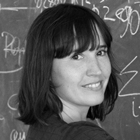 |
| INVITED |
|
 |
| . |
|
|
Maia Vergniory
Max Planck for Chemical Physics of Solids, Germany
Invited – Plenary Session
Maia G. Vergniory received her doctorate from the University of the Basque Country in Spain in 2008 and joined the Lawrence Berkeley National Laboratory in the US as postdoctoral fellow. After three years she moved to Max Planck Institute of Microstructure Physics for a second postdoc. She won L’Oreal award for Women in Science in 2017 and the Ikerbasque award in 2019. Since 2021 is a W2 professor at the Max Planck for the Chemical Physics of Solids in Dresden and a researcher at the Donostia International Physics Center.
|
|
|
|
|
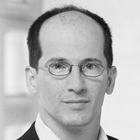 |
| INVITED |
|
 |
| . |
|
|
Andreas Wallraff
ETH Zurich, Switzerland
Invited – Plenary Session
Since January 2012 Andreas Wallraff is a Full Professor for Solid State Physics in the Department of Physics at ETH Zurich. He joined the department in January 2006 as a Tenure Track Assistant Professor and was promoted to Associate Professor in January 2010. Previously, he has obtained degrees in physics from Imperial College of Science and Technology, London, U.K., Rheinisch Westfälische Technische Hochschule (RWTH) Aachen, Germany and did research towards his Masters degree at the Research Center Jülich, Germany
|
|
|
|
|
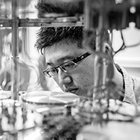 |
| INVITED |
|
 |
| . |
|
|
Joel Wang
MIT, USA
Invited – Plenary Session
Dr. Joel I-Jan Wang is a research scientist of Engineering Quantum Systems (EQuS) group at MIT Research Laboratory of Electronics. He was trained as an experimental condensed matter physicist, with particular emphasis on mesoscopic phenomena, nanofabrication, 2D materials, and hybrid superconducting quantum circuits. Dr. Wang leads the 2D (van der Waals) material team at EQuS to study new materials platforms for advancing superconducting quantum technologies, as well as fundamental physics in 2D materials using microwave and circuit quantum electrodynamics (cQED) techniques.
|
|
|
|
|
| |
|
|
|
|
|
|
|
© Phantoms Foundation 2022 |
|
|
|